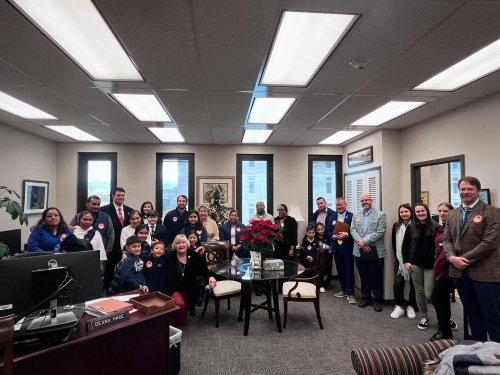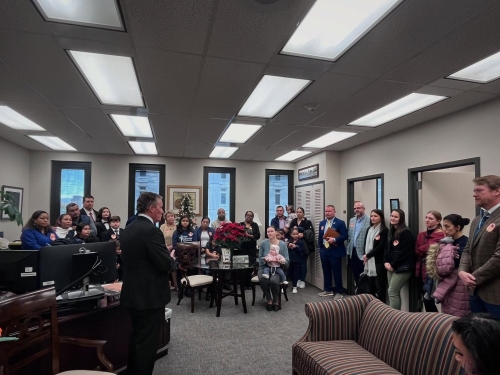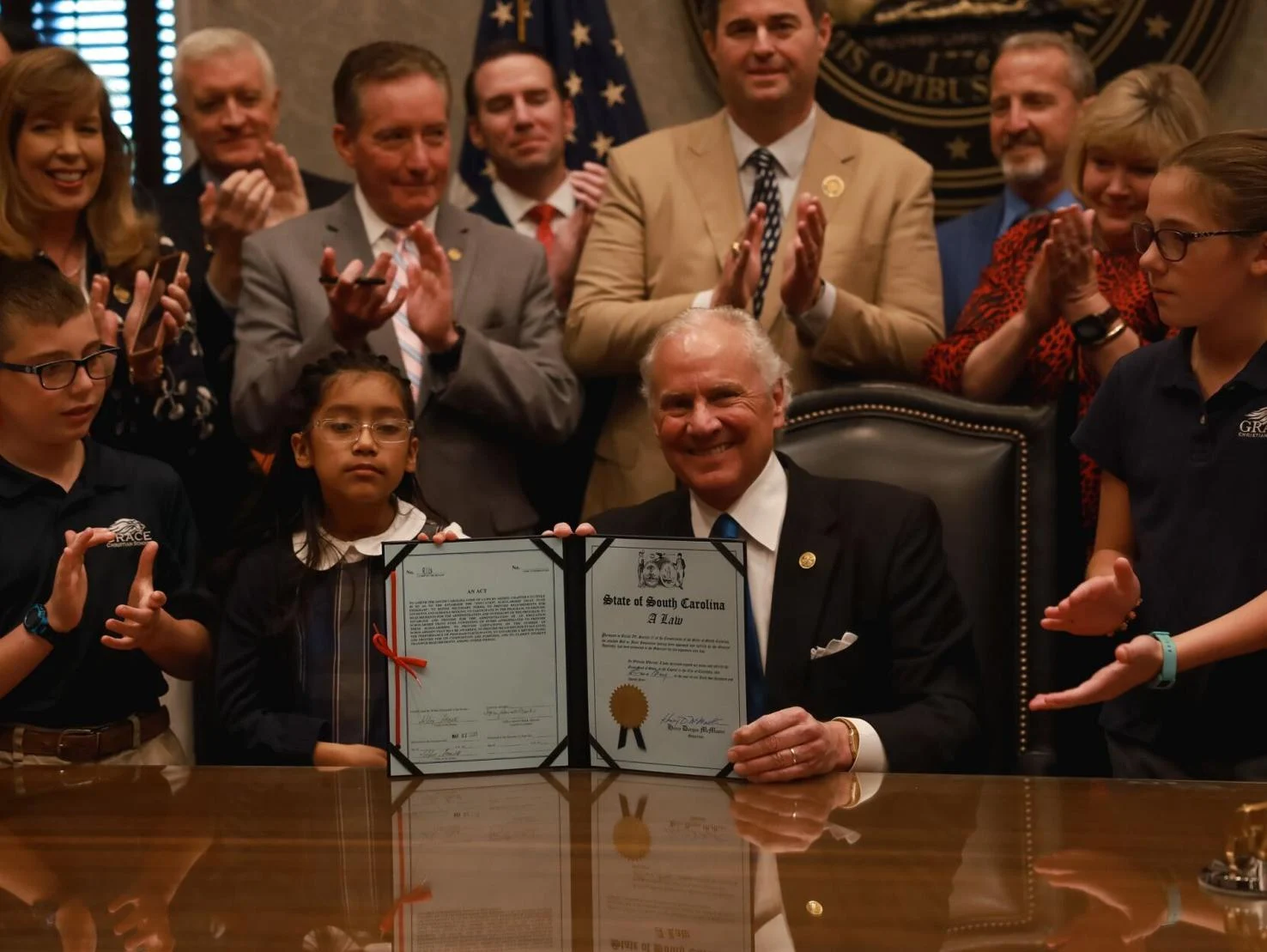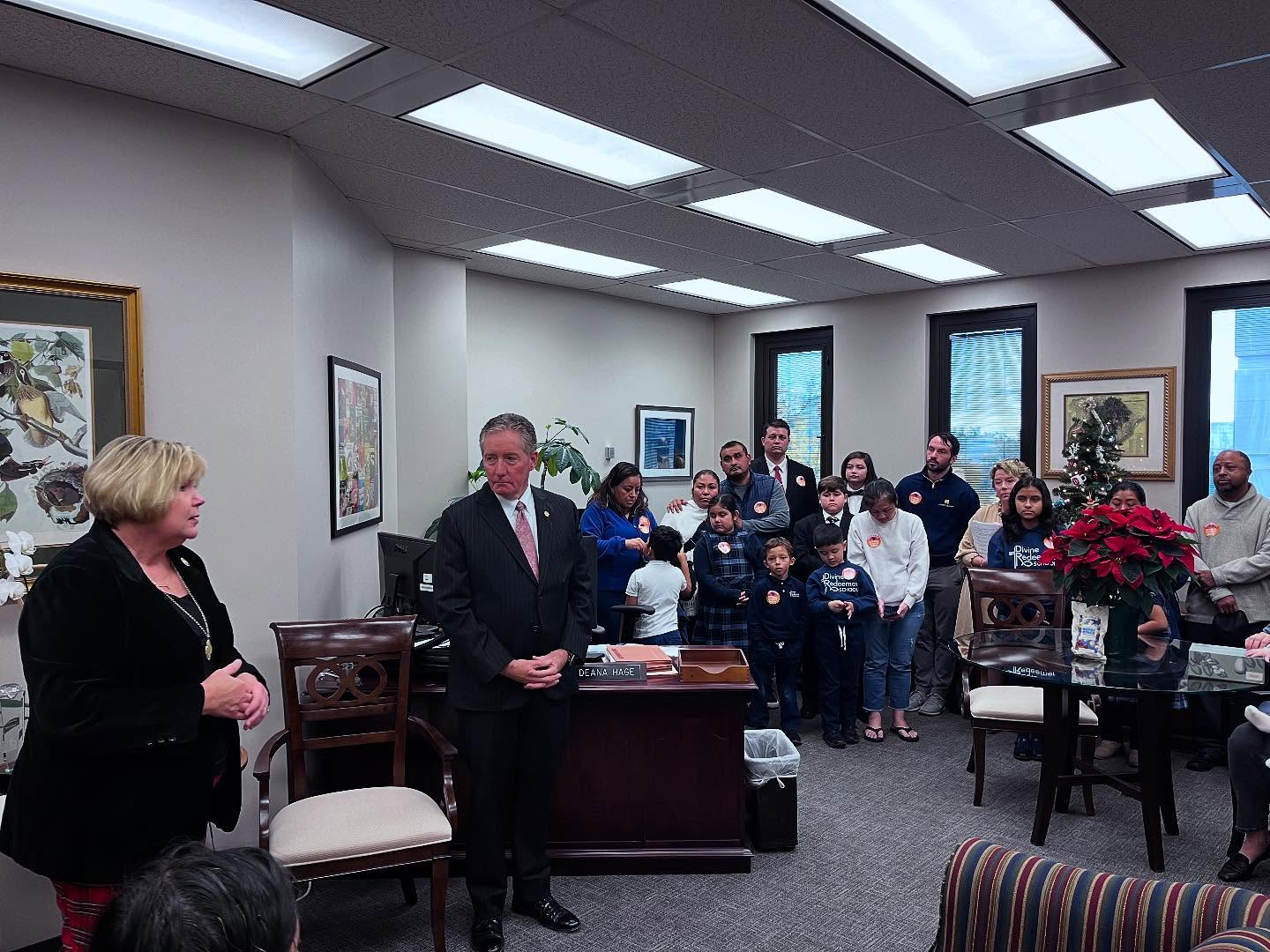The First Step to Save SC School Choice
“I’ve been asked, ‘Why are you in such a rush? Why are you in such a hurry? What’s the urgency on this?’ And I’ll be really clear about that. You’ve got a couple thousand students out there that are right in the middle of the school year. They have made that transition to an independent school….And then all of a sudden, as Chief Justice Kittredge noted, the majority opinion literally pulled the rug out from under them. These are students that otherwise cannot afford these these educational opportunities. And it’s working for them….these are real South Carolinians. These are real families that are caught in this sort of political, legal, Columbia problem. They’re the ones that are paying the price for all of this. So I think it’s it’s our obligation. If we didn’t get it right, we need to fix it and we need to fix it fast, because there are people that are counting on us.”
This is how Senator Greg Hembree, chair of the Senate’s Education committee, explained the urgency of passing legislation to restore South Carolina’s education scholarship account (ESA) program, the Education Scholarship Trust Fund (ESTF). Back in September 2024, after nearly three thousand SC children were already utilizing the program, ESTF was kneecapped by the SC Supreme Court’s ruling in Eidson v. SC Department of Education. This meant that the thousand children (all under 200% of the federal poverty line) who were using the ESTF to pay for their tuition at their independent school of choice were suddenly left without their awarded scholarships.
Our team heard firsthand the heartbreak and devastation of these ESTF families. Hundreds of parents wrote us to share their stories, and we were lucky enough to travel the state recording parents’ video testimonies the week after the court ruling and share those videos with lawmakers and others. (you can watch those videos here).
Palmetto Promise then launched the ESTF Family Rescue Fund, which has now raised over two million dollars to help the families stay in their schools of choice until the General Assembly can pass legislation to restore the program.
This week, legislators took the first steps toward saving school choice.
The Senate Education Committee’s K-12 Education Subcommittee met on Tuesday, December 10, to discuss the details of a new bill (S.62) that Senator Greg Hembree has filed to revise the program in light of the Eidson decision. House Education Chairlady Shannon Erickson remarked that this is the first time in her 17 years serving that she has seen a committee convene in December on an issue like this, which goes to show how seriously legislators are taking this pressing problem.
Our team attended the committee meeting along with a packed room of current ESTF parents who showed up to advocate for their children. Senator Hembree and Representative Erickson were kind enough to meet ESTF families and take their questions afterwards.
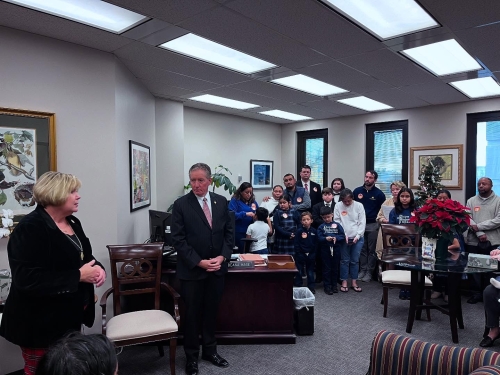
SO WHAT’S IN SENATOR HEMBREE’S PROPOSED BILL?
S.62 would do the following:
- Renames the ESTF program to the K-12 Education Lottery Scholarship fund.
- Change the source of funding for the program from the state’s general operating budget to revenue raised by SC Education Lottery. College scholarships currently funded by the SC Education Lottery that are given to public colleges and universities would be funded from the state budget. Thus, the Education Lottery funds would only go toward college scholarships at private institutions (through the Tuition Grants program) and tuition at private K-12 schools. Funds for other ESA uses would come from the state budget. Senator Hembree and his staff assured meeting attendees that the math adds up with moving money around.
- For the 2025-26 school year, participants would be limited to 300% of the federal poverty line and 10,000 scholarships. For the 2026-27 school yaer, participants would be limited to 400% of the federal poverty line and 15,000 scholarships. These are the same as current law.
- For the 2027-28 school year and every year after that, 15,000 scholarships would be awarded annually, and the income limit is raised to 600% of the federal poverty line (this is getting close to a universal ESA program, with 90%+ SC K-12 students eligible).
- For each of these, the previous year’s ESA students and their siblings would be given priority for ESA slots.
- The prior public school attendance requirement is REMOVED. Students currently in private schools could access ESAs. The only eligibility requirements are the above income limits and residency within the state of SC.
- Adds intradistrict transfer fees between public school districts as an allowable use for ESA funds.
- Adds school uniforms as an allowable use for ESA funds.
- Student ESA applications would be no longer limited to January 15- March 15 strictly. Applications would be accepted on a rolling basis while spots allow and would have to be notified within 30 days of applying if they are accepted or not.
- Requires students to be notified within 30 days if they are approved.
- Scholarships amounts would increase from $6,000 to the average per pupil funding from state sources for the prior academic year. For last year, that number was a little over $8,000.
- Clarifies the testing requirement for Education Service Providers so schools only have to offer once-annual summative assessments or thrice annual formative assessments.
There is a lot to love in this bill. It moves the existing ESA program to what is approaching universal eligibility and removes the strict prior public school attendance requirement that kept so many students already at private schools on institutional scholarships from being able to participate this past year. Additionally, the short two-month application window that kept so many students from participating this school year is extended until all scholarships are awarded, something that we asked for back in the spring. Hembree attempts to work within the confines of the Eidson decision when setting up the ESA funding source to ensure that no funds for the program are public funds.
We expect the Senate and House to have productive debate on the final form of ESTF legislation in January. The legislature returns to Columbia on January 14, and we are hopeful that legislation will be able to move quickly to pass a bill that will allow current ESTF families to finish the school year with their promised scholarships and restores SC’s ESA program for years to come.
